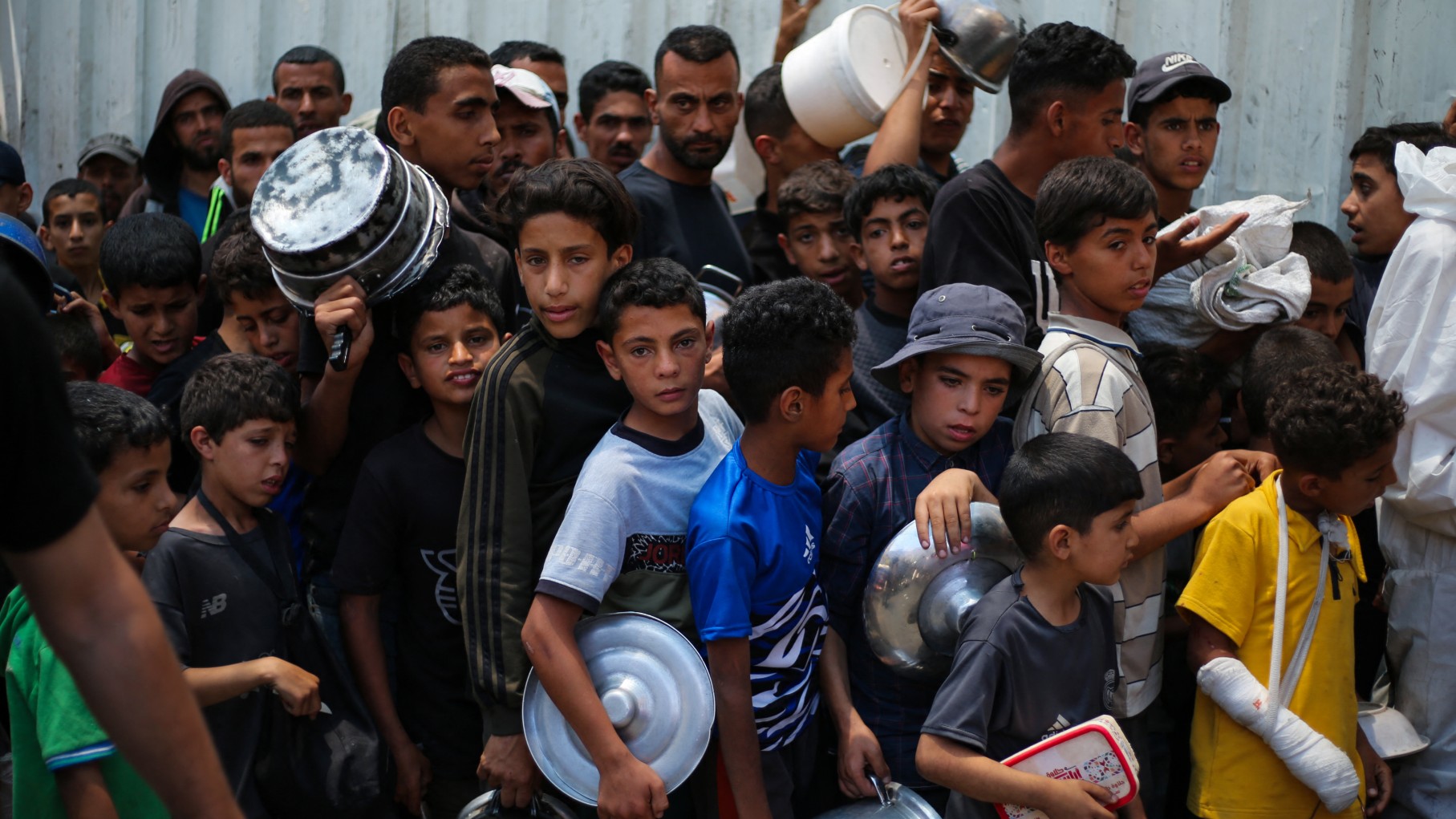Gaza Humanitarian Foundation: the group behind controversial new aid programme
Deadly shootings and chaotic scenes have been reported at aid sites after US group replaced UN humanitarian organisations

A free daily email with the biggest news stories of the day – and the best features from TheWeek.com
You are now subscribed
Your newsletter sign-up was successful
At least 27 Palestinians are reported to have been killed and dozens injured in Israeli attacks on an aid distribution site in Rafah run by the Gaza Humanitarian Foundation.
It is the third consecutive day of such incidents after Israel imposed a new aid distribution regime on the Gaza Strip after a weeks-long blockade of the region.
UN Secretary-General António Guterres has called for an independent investigation into the shooting of Gazans seeking aid at GHF sites, which has happened with alarming regularity since the Israel and US-backed group started its operations on 27 May.
The Week
Escape your echo chamber. Get the facts behind the news, plus analysis from multiple perspectives.

Sign up for The Week's Free Newsletters
From our morning news briefing to a weekly Good News Newsletter, get the best of The Week delivered directly to your inbox.
From our morning news briefing to a weekly Good News Newsletter, get the best of The Week delivered directly to your inbox.
While the killings have been difficult to verify independently – international news organisations are banned by Israel from entering Gaza – a spokesperson for the International Committee of the Red Cross told Reuters that its field hospital in Rafah received 184 casualties; 19 of those were declared dead on arrival and eight subsequently died of their wounds.
What is the GHF?
GHF is the "linchpin" of a new aid distribution system designed to "wrest distribution away" from UN aid organisations, which have done most of this work in the region since the war began in 2023, said The Associated Press.
Food distribution is now limited to a small number of hubs run by the group, which employs armed contractors, ex-military officers and humanitarian aid officials. There are currently four hubs, "all close to Israeli military positions", said AP.
GHF is backed by Israel and the US but it is not clear who is funding the group. It claims to have "more than $100 million in commitments from a European Union government", but has not named the country, while the US and Israel have denied they are the source of funding.
A free daily email with the biggest news stories of the day – and the best features from TheWeek.com
The foundation said in an email on Monday that it had distributed nearly 6 million meals during its first week of operations. "It proves our model is functional and is an effective means to deliver life-saving assistance to the Gazan people under emergency conditions," wrote John Acree, the American former US Agency for International Development official who was named last week as the GHF’s interim director.
Why is it controversial?
Aid distribution operations were handed to GHF after Israel demanded an alternative plan for delivering aid, accusing Hamas of siphoning off a significant portion of the aid entering Gaza.
The UN has denied that there has been any significant diversion of aid to the proscribed terrorist group and rejects the use of GHF, arguing it allows Israel to use food as a weapon, violates humanitarian principles and is ineffective at delivering aid.
Other humanitarian organisations operating in Gaza have also refused to work with the group. "We cannot take part in a system that violates humanitarian principles and risks implicating us in serious breaches of international law," said Shaina Low, from the Norwegian Refugee Council.
How has it distributed aid?
Aid distribution points run by GHF have been chaotic and, for dozens of Gazans, deadly. Al Jazeera journalist Hind Khoudary, reporting from Gaza, said there was "chaos" at the site in Rafah where 27 Palestinians were reportedly killed. There was "no process" and "no system" in place to distribute food aid. It was the third day of deadly shootings at aid sites.
"You just need to run first to be able to get the food," Khoudary said. "The Israeli forces just opened fire randomly, shooting Palestinians … using quadcopters and live ammunition." A "very limited amount" of "flour, oil, lentils and other canned food" is being distributed.
GHF had denied reports of violence in or around the sites, while the Israeli military said it was looking into the reports of casualties.
Can GHF stop famine in Gaza?
The group has said its four hubs will serve meals for 300,000 people, and will eventually be able to feed 2 million as it creates additional hubs over the next 30 days.
But there are no hubs currently in northern or central Gaza, where the majority of displaced Gazans now are. It means most Gazans have to cross Israeli military lines and checkpoints to reach hubs near Rafah.
There are also concerns over the meals that GHF is distributing. They contain only about 1,750 calories, far below the 2,100-calorie-per-day standard for meals in emergency situations used by UN humanitarian groups.
The UN has said it does not believe GHF can meet the needs of Gaza's starving population, warning that the entire population is at "critical risk" of famine.
Sorcha Bradley is a writer at The Week and a regular on “The Week Unwrapped” podcast. She worked at The Week magazine for a year and a half before taking up her current role with the digital team, where she mostly covers UK current affairs and politics. Before joining The Week, Sorcha worked at slow-news start-up Tortoise Media. She has also written for Sky News, The Sunday Times, the London Evening Standard and Grazia magazine, among other publications. She has a master’s in newspaper journalism from City, University of London, where she specialised in political journalism.